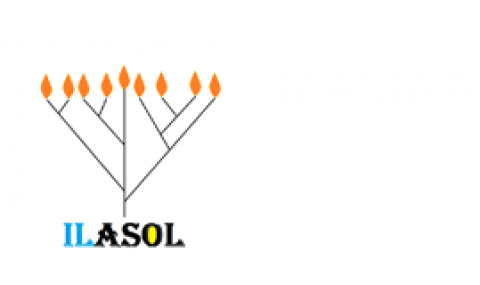Recent selected publications from the ILASOL committee members:
Amri Wandel's group
- Wandel, A., & Gale, J. (2020). The Bio-habitable Zone and atmospheric properties for Planets of Red Dwarfs. International Journal of Astrobiology, 19(2), 126-135.
- Wandel, A., & Tal-Or, L. (2019). On the habitability of Teegarden’s Star planets. The Astrophysical Journal Letters, 880(2), L21.
- Wandel, A. (2018). On the Biohabitability of M-dwarf Planets. The Astrophysical Journal, 856(2), 165.
- Gale, J., & Wandel, A. (2017). The potential of planets orbiting red dwarf stars to support oxygenic photosynthesis and complex life. International Journal of Astrobiology, 16(1), 1-9.
Doron Lancet's group
- Lancet, D., Segrè, D., & Kahana, A. (2019). Twenty Years of “Lipid World”: A Fertile Partnership with David Deamer. Life, 9(4), 77.
- Kahana, A., Schmitt-Kopplin, P., & Lancet, D. (2019). Enceladus: First observed primordial soup could arbitrate origin-of-life debate. Astrobiology, 19(10), 1263-1278.
- Kahana, A., & Lancet, D. (2019). Protobiotic systems chemistry analyzed by molecular dynamics. Life, 9(2), 38.
- Lancet, D., Zidovetzki, R., & Markovitch, O. (2018). Systems protobiology: origin of life in lipid catalytic networks. Journal of The Royal Society Interface, 15(144), 20180159.
Gonen Ashkenasy's group
- Frenkel-Pinter, M., Samanta, M., Ashkenasy, G., & Leman, L. J. (2020). Prebiotic Peptides: Molecular Hubs in the Origin of Life. Chemical Reviews.
- Kroiss, D., Ashkenasy, G., Braunschweig, A. B., Tuttle, T., & Ulijn, R. V. (2019). Catalyst: can systems chemistry unravel the mysteries of the chemical origins of life?. Chem, 5(8), 1917-1920.
- Ashkenasy, G., Hermans, T. M., Otto, S., & Taylor, A. F. (2017). Systems chemistry. Chemical Society Reviews, 46(9), 2543-2554.
- Nanda, J., Rubinov, B., Ivnitski, D., Mukherjee, R., Shtelman, E., Motro, Y., ... & Ashkenasy, G. (2017). Emergence of native peptide sequences in prebiotic replication networks. Nature communications, 8(1), 1-9.
Shay Zucker's group
- Tal-Or, L., Zucker, S., Ribas, I., Anglada-Escudé, G., & Reiners, A. (2019). Prospects for detecting the astrometric signature of Barnard’s Star b. Astronomy & Astrophysics, 623, A10.
- Zucker, S., & Giryes, R. (2018). Shallow Transits—Deep Learning. I. Feasibility Study of Deep Learning to Detect Periodic Transits of Exoplanets. The Astronomical Journal, 155(4), 147.
- Bashi, D., Helled, R., & Zucker, S. (2018). A Quantitative Comparison of Exoplanet Catalogs. Geosciences, 8(9), 325.
- Bashi, D., Helled, R., Zucker, S., & Mordasini, C. (2017). Two empirical regimes of the planetary mass-radius relation. Astronomy & Astrophysics, 604, A83.
Tal Mor's group
- Agmon, I., Fayerverker, I., & Mor, T. (2019). Coding triplets in the transfer RNA arm and their role in present and past tRNA recognition. bioRxiv, 559948.
- Fayerverker, I., & Mor, T. (2018, March). On Code-Prompting Auto-Catalytic Sets and the Origins of Coded Life. In COMPLEXIS (pp. 53-63).
- Boyer, M., Katz, M., Liss, R., & Mor, T. (2017). Experimentally feasible protocol for semiquantum key distribution. Physical Review A, 96(6), 062335.
- Agmon, I., & Mor, T. (2015, December). A Model for the Emergence of Coded Life. In International Conference on Theory and Practice of Natural Computing (pp. 97-108). Springer, Cham.



